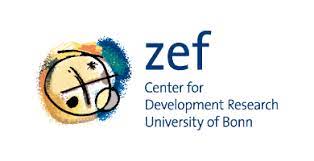
Plural sustainabilities: reflections and ways ahead
Gilgan, Sandra / Dennis Avilés-Irahola / Kehinde Balogun / [...] / Michael Brüntrup / Marcelo Inacio Da Cunha et al.Externe Publikationen (2025)
Working Paper 246, Bonn: Center for Development Research (ZEF)
“Sustainability” is a diverse and contested concept that cannot be reduced to a single definition or practice. We propose the concept of “plural sustainabilities” to raise awareness of how different worldviews, knowledge systems, and values shape understandings of sustainability, recognizing the context-specific and culturally rooted approaches to sustainability found across the globe. Thereby, we use the concept of sustainability as a “boundary object”—a flexible term that connects different perspectives—and illustrates a plurality of sustainability concepts and practices through examples from various countries, including Bolivia, Colombia, Chile, Indonesia, Ghana, Germany, Tanzania, and China. These examples highlight how local knowledge, cultural philosophies, national narratives, grassroots initiatives, and international policy frameworks contribute to sustainability. Through our discussions, we advocate for a “scientific multilingualism”— a more inclusive and pluralistic approach to sustainability research that values diverse way of living, interacting with, and making sense of the world. “Plural sustainabilities” calls on researchers to critically assess the development models advanced in the name of sustainability, particularly those influenced by national governments and international organizations. These models often, whether intentionally or not, perpetuate the same extractive practices and socio-environmental injustices they aim to resolve. A truly critical approach must go beyond surface-level commitments and explore how political decisions and institutional practices—both public and private—shape sustainability efforts in ways that may reinforce existing power structures. Recognizing and challenging this political use of sustainability is essential to support alternative, context-based responses grounded in plural worldviews, local knowledge, and transformative action.


